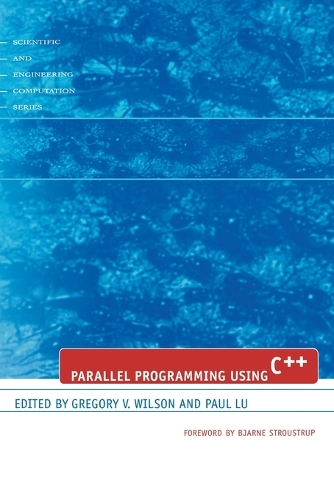
Parallel Programming Using C++
(Paperback)
Publishing Details
Parallel Programming Using C++
By (Author) Gregory V. Wilson
Edited by Paul Lu
Edited by William Gropp
Edited by Ewing Lusk
MIT Press Ltd
MIT Press
8th July 1996
United States
Classifications
Tertiary Education
Non Fiction
Object-oriented programming (OOP)
Programming and scripting languages: general
004.35
Physical Properties
Paperback
760
Width 152mm, Height 229mm, Spine 41mm
1247g
Description
"Parallel Programming Using C++" presents a broad survey of efforts to use C++, an object-oriented programming language, on high-performance parallel computers and clusters of workstations. Sixteen different dialects and libraries are described by their developers and illustrated with many small example programmes. Most programming systems for high-performance parallel computers widely used by scientists and engineers to solve complex problems are so-called universal languages that can run on a variety of computer platforms. Despite the benefits of this "platform independence", such a watered-down approach results in poor peformance. A way to solve the problem, while preserving universality and efficiency, is to use an object-oriented programming language such as C++. Parallel object-oriented programming systems may be able to combine the speed of massively parallel computing with the ease of sequential programming. In each of the 16 chapters a different system is described by its developers. The systems featured cover the entire spectrum of parallel programming paradigms from dataflow and distributed shared memory to message passing and control parallelism. The descriptions include information on the system's history, design, implementation and performance. A common example (polygon overlay) is implemented in each chapter to facilitate comparison of different systems. Three appendices provide brief overviews of parallel computing, C++, and the polygon overlay problem.
Author Bio
Gregory Wilson is Head of Instructor Training at Data Camp, Cofounder of Software Carpentry, and editor of Beautiful Code, Making Software, and The Architecture of Open Source Applications.
